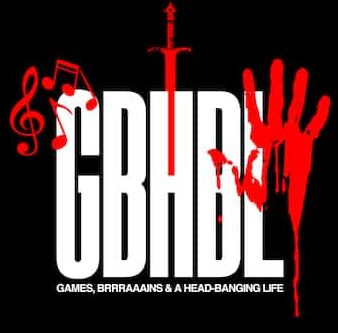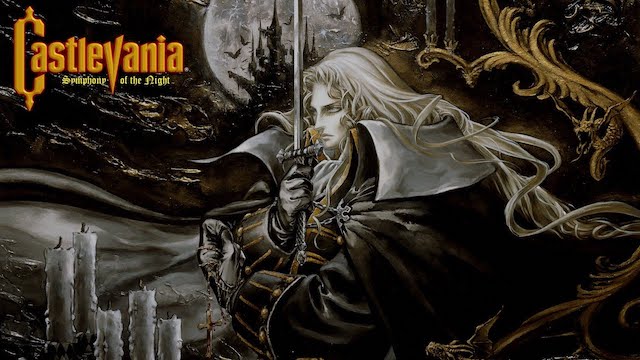Game Review: Castlevania: Symphony of the Night (PS1)
In recent years, the term ‘metroidvania’ has enjoyed something of a resurgence. Contemporary titles such as “Hollow Knight” and “Metroid Dread” have ushered this particular sub-genre back into the public consciousness, whilst its influence can be traced into the Arkham games and Remedy’s sublime ray tracing showcase “Control”. This being the case, a compelling argument can be made for those recently acquainted with the genre to revisit the classics of its ilk, perhaps beginning with Konami’s “Castlevania: Symphony Of The Night.”
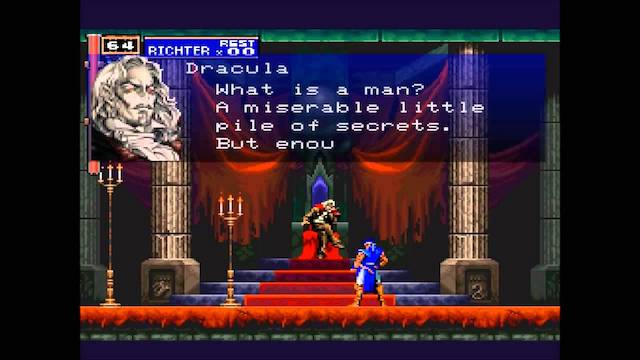
This game was released in 1997 for the Sony Playstation and the Sega Saturn, before eventually being ported to a wide array of platforms, and currently sits at a 93% on Metacritic. The game focuses around the exploration of Castle Dracula, with the ultimate goal of slaying the tyrannical Count himself, yet this plot falls by the wayside when one becomes immersed in the traversal systems and progression epitomizing the metroidvania tag.
In a warped twist of the cinematic rags-to-riches trope, protagonist Alucard is stripped of his power and weaponry and left to fight tooth and nail to reclaim what was lost. It is this early-game tease that provides immediate motivation to the player, showcasing what an endgame build could look like -with perseverance- before snatching those tools away cruelly. The game then proceeds to reveal its all-new RPG elements, providing a multitude of armament options obtained through drops from monsters, each with their own stats and benefits, yet also with drawbacks such as differences in range.
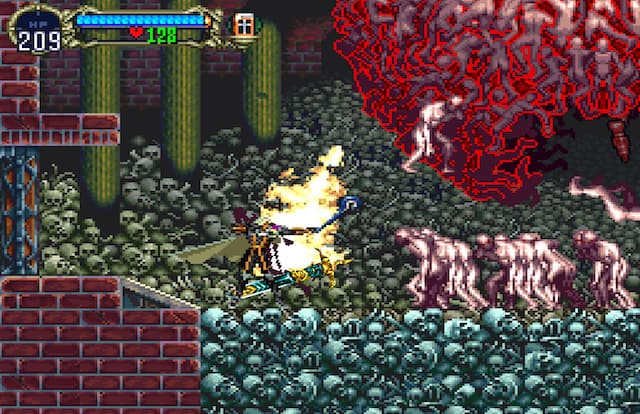
This risk-reward system extends to armor pieces, shields, and even the series staple secondary weapons, whilst the inclusion of button inputs to cast a variety of spells ensure that options are many. More options are provided through a rudimentary levelling system, an in-game shop, and familiars that can assist in the player’s exploration. Movement in “Symphony Of The Night” is an absolute thrill, beginning with a walk, jump, and backwards dash; eventually the player will find themself double-jumping, transforming into a bat to pass through tight spaces, and a mass of alternatives that are best reserved for personal discovery. The castle is a sprawling labyrinth of passages, hallways, and secret areas that can take tens of hours to fully complete, and no option offered to the player should be overlooked.
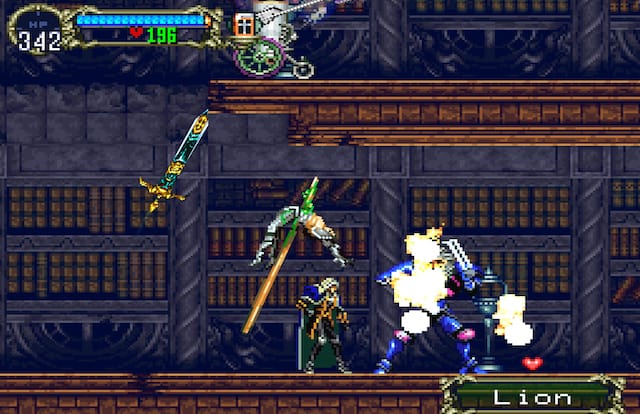
The rogues gallery of bosses boast multiple attacks apiece, to keep the player guessing, and all of the aforementioned aspects of gameplay coalesce into a much greater whole centered around that looping sense of achievement when one explores, discovers a powerful new foe, and then finds a tool that might help them to progress. Modern players may even find analogous design in the hyper-successful “Elden Ring,” or “Breath Of The Wild.” Of course, no game is truly devoid of any flaws at all, and this is no different. The game is very obtuse and unyielding, leaving so many of its mechanics up for experimentation and unintentional discovery. Spell inputs and intended destinations are not so overtly communicated as in many of its contemporaries, and these issues have been remedied in quality of life additions to later imitators such as “Hollow Knight.”
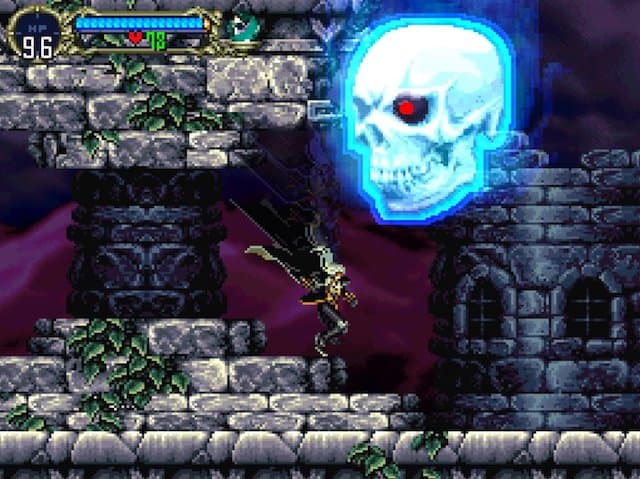
The dialogue is also a little cheesy at times, which leads on to a version comparison. The game has been ported multiple times, and later releases -including the PSP version, and the PS4 revision- altered certain lines of voice acting and had the actors re-record their parts.
Neither version holds up especially well in this regard, yet to complain about the voice acting also requires the praise of other aspects of the sound design. The music is absolutely incredible, with particular praise to be reserved for the iconic ‘Dracula’s Castle’ score, and this compliments the unbelievably high-quality pixel art. Mass market games such as this simply are not created anymore.
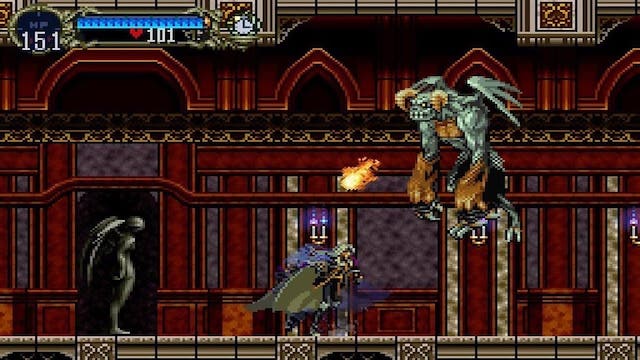
In summary, “Castlevania:Symphony Of The Night” is a title that explodes past tags such as ‘a relic of the past,’ with more than enough inventive ideas and creatively placed secrets to impress even one well-versed in titles like “Hollow Knight.” I recommend it to fans of exploration-centered titles of the last few years, with the comparisons drawn throughout this review not being at all out of place. This is an unforgettable experience.
Castlevania: Symphony of the Night (PS1)
-
The Final Score - 9/10
9/10
